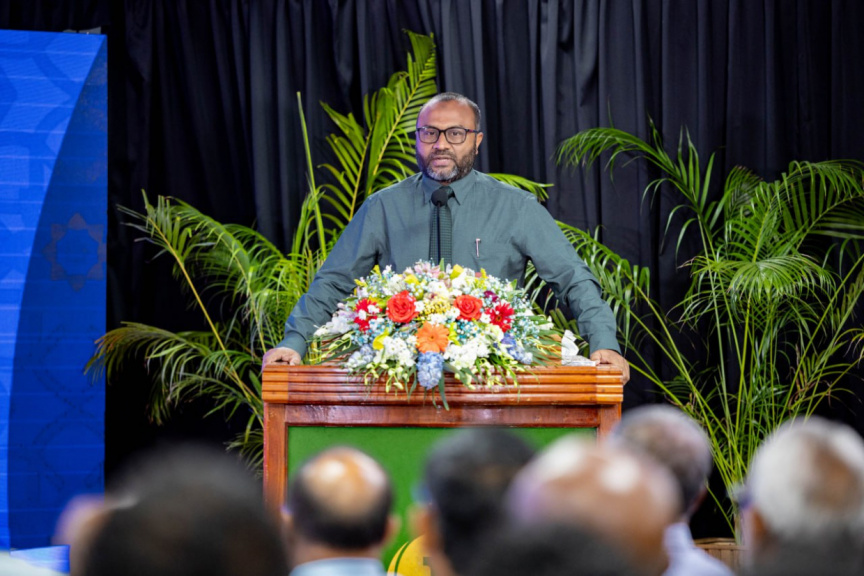
Dr. Mohamed Shaheem Ali Saeed, the Minister of Islamic Affairs speaking at the Higher Education Assistance awarding ceremony, where scholarships for Islamic studies were awarded through the Zakat Fund on August 16, 2025. (Photo/Islamic Ministry)
On Saturday evening, Dr. Mohamed Shaheem Ali Saeed, the Minister of Islamic Affairs, asserted that the Zakat Fund represents the most beneficial and alleviating of the various governmental funds available within the nation.
Speaking at the Higher Education Assistance awarding ceremony, where scholarships and stipends for Islamic studies are awarded through the Zakat Fund, Minister Shaheem emphasized that it is incorrect to perceive a separate Zakat agency as an increased burden on the state. He asserted that, among the various funds currently available in the Maldives, the Zakat fund offers the most convenience for the government.
Minister Shaheem highlighted the critical role of Zakat funds in covering expenses not fully addressed by existing government medical systems like Aasandha. He noted that Zakat funds are utilized for significant medical procedures, including kidney, liver, and bone marrow transplants for individuals unable to afford such treatments or for services not covered by Aasandha.
Furthermore, Shaheem stated that the contemporary vision of the Islamic world involves developing various institutions, such as the Zakat system, in alignment with modern advancements. He pointed to countries like Kuwait, Malaysia, the UAE, and Qatar, which have established Zakat institutions, affirming that the Maldives possesses ample resources to achieve a similar setup.
It is relevant to note that the government has introduced a Zakat bill in Parliament, which is presently in the committee stage.
The proposed bill aims to legally mandate the payment of Zakat in the Maldives, ensuring its collection and acceptance align with the objectives of Zakat in Islamic jurisprudence. It also stipulates that the distribution of Zakat proceeds must adhere to a strict framework.
The bill outlines the nature and method of accepting Zakat, details the eligible recipients, and specifies procedures for accepting Zakat from property or assets.
A key provision of the bill is the mandatory establishment of a Zakat Council within two months of the bill's enactment. This nine-member council will comprise the Islamic Minister, a Director General, and representatives from the Maldives Monetary Authority (MMA), the Center for Holy Quran, the Finance Ministry, the Fatwa Council, the Islamic Ministry, and two Zakat experts.